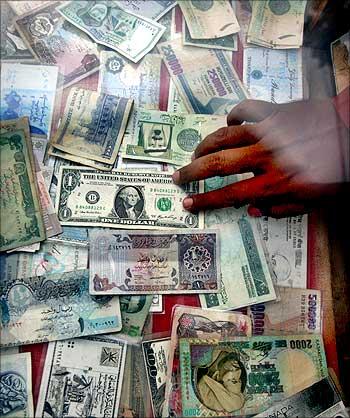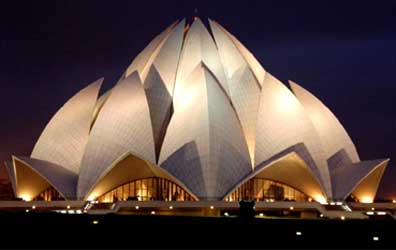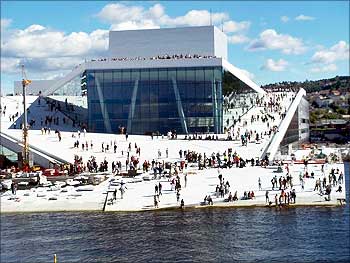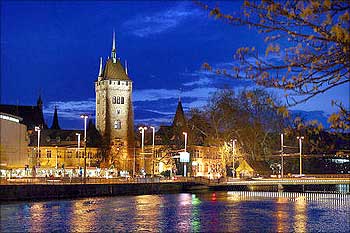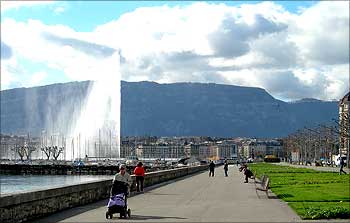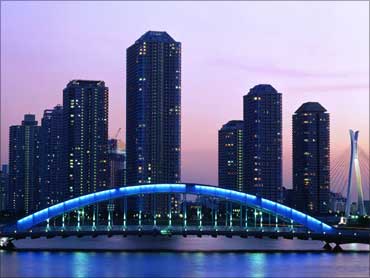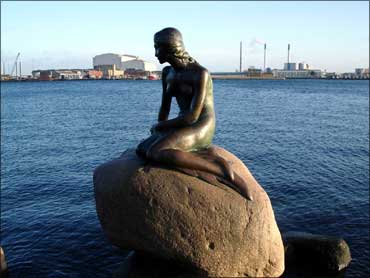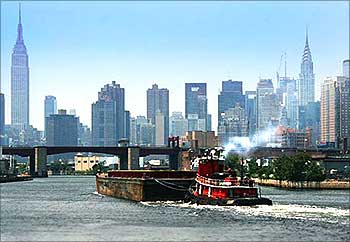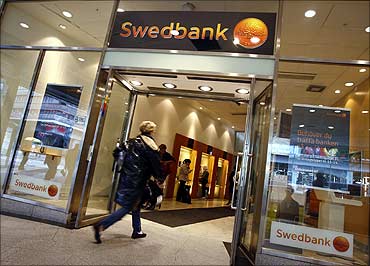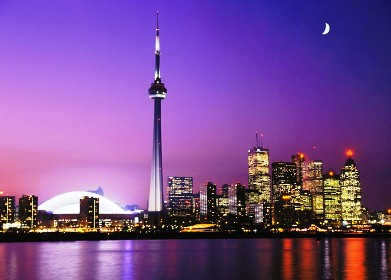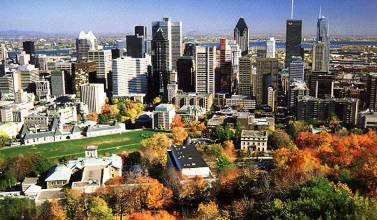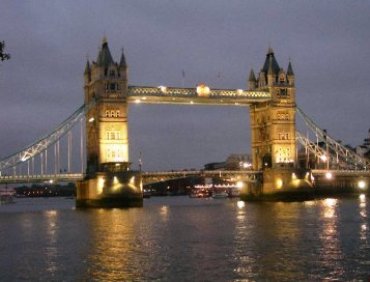 | « Back to article | Print this article |
Delhi, Mumbai among world's most expensive cities
New Delhi and Mumbai figure in a list of the world's most expensive cities to live in. This survey was conducted by Swiss wealth management firm UBS Bank and appears in its publication Prices and Earnings -- A global purchasing power comparison.
The UBS study, released this week, gives the latest update on a previous study on price and wage comparison of 73 of the world's cities.
For the 2009 edition, a standardised survey of prices and wages in 73 cities around the world was conducted by a number of independent price surveyors. The questionnaire used for the survey covered 122 different goods and services, and included 112 questions pertaining to wages, payroll deductions and working hours for 15 different occupations.
In terms of interpreting the results, all price information gathered had to be converted into a reference currency, making such data subject to fluctuating exchange rates.
Cities like Auckland and Sydney climbed nearly 20 places in the rankings because of the dramatic appreciation of the New Zealand and Australian dollar, respectively, versus the US dollar to join the top third of the world's most expensive cities.
The survey also noted that the highest growth rates for gross domestic product were recorded by China (10.7 per cent) and Taiwan (9.1 per cent).
Click NEXT to find out which are world's most expensive cities . . .
Delhi, Mumbai among world's most expensive cities
New Delhi: Rank 70
New Delhi, capital of India, ranks 70th in the list of the world's most expensive cities. On the price level index -- on the basis of which cities are ranked in the list of the world's costliest cities -- Delhi scores 45.7.
In terms of wage levels, however, it scores a very low 8.6, as compared to New York which scores 100 and Zurich which scores the highest at 121.8. This means that salaries are the highest in Zurich, and amongst the lowest in Delhi, which ranks 69th in terms of wage levels in the list of 73 cities surveyed by UBS.
Delhi's key service industries, backed by as strong and well laid out infrastructure, include IT, telecommunications, hotels, banking, media and tourism.
In recent times, Delhi's manufacturing industry has grown considerably and consumer goods industries have established manufacturing units and headquarters in and around the capital.
Construction, power, telecommunications, health and community services, and real estate form the backbone of Delhi's economy.
The capital's retail industry is one of the fastest growing industries in India. Public transport in Delhi consists of buses, auto rickshaws, taxis, suburban railways and metro rail.
Click NEXT to read further. . .Delhi, Mumbai among world's most expensive cities
Mumbai: Rank 73
Mumbai, the nation's financial capital, is the 73rd most expensive city in the world. It is the least expensive amongst the 73 cities surveyed by UBS in terms of price levels. It scores 37.5 on the price level index.
In terms of wages too, Mumbai ranks lowest. Its score is a poor 6.3 on the wage level index, meaning that wage levels in Zurich are almost 20 times that in Mumbai!
Mumbai is the commercial and entertainment centre of India, generating 5 per cent of India's gross domestic product, and accounting for 25 per cent of industrial output, 40 per cent of maritime trade, and 70 per cent of capital transactions to India's economy.
Mumbai is one of the world's top 10 trade centres. It accounts for about 1 per cent of the total population in India but has a per capita income which is almost three times that of India.
Mumbai also generates 14 per cent of India's income tax collections and 37 per cent of the corporate tax collections in the country.
The city is the berth of significant financial institutions like the Reserve Bank of India, Bombay Stock Exchange and the National Stock Exchange of India.
Click NEXT to know more about world's 10 most expensive cities . . .
Delhi, Mumbai among world's most expensive cities
Oslo: Rank 1
Oslo is fifth richest city and the world's most expensive city. It is also the hub of Norwegian trade, banking, industry and shipping. Its score on price levels is 120.4 (the base level is New York at 100).
In terms of salaries, Oslo is the world's fourth best place, with a score of 102.1.
According to UBS, the deductions take the largest average bite out of gross income in Western Europe (27.6%), followed closely by North America (26.2%) and Eastern Europe (25.1%).
Payroll deductions are lower in the Middle East (9.2%), Asia (13.4%), South America (15.1%), Africa (19%) and Oceania (22%).
The highest payroll deductions are found in Copenhagen and Ljubljana, followed by Munich, Oslo, Amsterdam, Brussels and Frankfurt, where at least one-third is deducted from gross wages.
Payroll deductions are lowest in Bangkok, Delhi, Hong Kong, Caracas and Mexico City, where less than 10% of gross income -- although relatively modest -- goes to taxes and social security contributions on average.
State deductions are virtually nonexistent in the cities of Doha, Dubai and Manama.
Click NEXT to read further. . .
Delhi, Mumbai among world's most expensive cities
Zurich: Rank 2
Zurich is the world's second most expensive city to live in. Zurich has also been among the top cities that offer best quality of living in the world. It scores 114.1 on the index.
In terms of salaries, people in Zurich draw the biggest paycheques. It scores 121.8 on the wage level index. Salaires in Zurich are 21 per cent higher than those in New York and almost 20 times higher than those in Mumbai.
The financial hub of Switzerland, Zurich is home to financial institutions and banks like UBS, Credit Suisse, Swiss Re, Zurich Financial Services.
In terms of wages, Zurich is the best. The net incomes are higher than in any other city in the world. With its extremely high gross wages and comparatively low tax rates, Switzerland is a very employee-friendly country.
Click NEXT to read further. . .
Delhi, Mumbai among world's most expensive cities
Geneva: Rank 3
Geneva is referred to as world's most compact metropolis. It is the world's 3rd most expensive city with a score of 112.4 on the price level index.
With a score of 117.3 on the wage level index, Geneva is the city with the third highest wages in the world.
Geneva is the second-most-populous city in Switzerland after Zurich and is the most populous city of Romandie, the French-speaking part of Switzerland.
Geneva is a global city, a financial centre, and a worldwide centre for diplomacy. It house numerous international organisations, including the headquarters of many United Nations' agencies and the Red Cross.
Geneva has been described as the third European financial centre after London and Zurich
The city is also expensive to live in as people in Geneva and Zurich have to shell out around 20 per cent more on average for products, services and accommodation than their peers in other Western European cities.
Click NEXT to read further. . .
Delhi, Mumbai among world's most expensive cities
Tokyo: Rank 4
Tokyo, originally a small fishing village named Edo, is the world's fourth most expensive city to live in. On the price level index, it score 105.7.
However, in terms of salaries, Tokyo ranks 17th in the world, with a wage level index score of 77.1.
It is one of the three world finance 'command centres', along with New York City and London.
Tokyo was rated by the Economist Intelligence Unit as the most expensive (highest cost-of-living) city in the world for 14 years in a row ending in 2006.
The Tokyo Stock Exchange is Japan's largest stock exchange, and second largest in the world by market capitalisation.
Click NEXT to read further. . .
Delhi, Mumbai among world's most expensive cities
Copenhagen: Rank 5
Copenhagen is the 5th most expensive city in the world and the financial hub of Denmark. It scores 103.6 on the price level index.
Wages in Copenhagen are the second highest in the world, only next to Zurich. Th eDanish capital score a high 118.2 on the wage level index.
In 2008, Copenhagen was ranked 4th by FDi magazine in the list of Top 50 European Cities of the Future.
Copenhagen is the economic and financial centre of the Scandinavian-Baltic region.
Besides the services industry, life science and research and development plays a major role in the economy of the city.
Major Danish biotech companies like Novo Nordisk and Lundbeck are located in Copenhagen.
Copenhagen has some of the highest gross wages in the world.
Click NEXT to read further. . .
Delhi, Mumbai among world's most expensive cities
New York: Rank 6
New York City, the most populous city in the United States, is known for its status as a financial, cultural, transportation, and manufacturing centre.
It is the 6th most expensive city to live in, in the world with a price level index score of 100.
Wages in New York are the fifth highest in the world. It scores 100 on the wage level index.
If New York were an independent nation, it would rank as the 16th largest economy in the world behind Turkey.
New York exports foodstuff, commodities, minerals, computers and electronics, cut diamonds, and automobile parts.
New York City is the leading centre of banking, finance and communication in the United States and houses the New York Stock Exchange, the largest stock exchange. Many of the world's largest corporations are based in the city.
Click NEXT to read further. . .
Delhi, Mumbai among world's most expensive cities
Stockholm: Rank 7
Stockholm is the capital and the largest city of Sweden. It is the site of the national Swedish government, the Riksdag (parliament), and the official residence of the Swedish monarch as well as the prime minister.
Stockholm is also the seventh most expensive city in the world with a price level index score of 97.1. Wages in Stockholm are the eighth highest in the world and it has a wage level index score of 82.4.
In The 2008 Global Cities Index, Stockholm ranked 24th in the world, 10th in Europe, and first in Scandinavia. It is sometimes referred to as Venice of the North.
The vast majority of Stockholmians work in the service industry, which accounts for roughly 85 per cent of jobs in Stockholm. The almost total absence of heavy industry makes Stockholm one of the world's cleanest metropolises.
Click NEXT to read further. . .
Delhi, Mumbai among world's most expensive cities
Toronto: Rank 8
Toronto is the largest city in Canada and the provincial capital of Ontario. It is the world's most expensive city to live in. Its score on the price level index is 95.2.
Wages in Toronto are the 13th highest in the world. It scores 78.9 on the wage level index.
As Canada's economic capital, Toronto is one of the top financial centres in the world.
Because of the city's low crime rates, clean environment, high standard of living, and friendly attitude to diversity, Toronto is consistently rated as one of the world's most livable cities by the Economist Intelligence Unit.
Toronto has a high concentration of banks and brokerage firms on Bay Street, in the Financial District.
The Toronto Stock Exchange is the world's eighth-largest stock exchange by market capitalization.
Click NEXT to read further. . .
Delhi, Mumbai among world's most expensive cities
Montreal: Rank 9
Montreal is the second-largest city in Canada and the largest city in the province of Quebec. The world's 9th most expensive city scores 92.0 on the price level index.
Wages in Montreal are the 16th highest in the world, too. The city has a wage level index score of 77.7.
Montreal's economy is the second largest of all cities in Canada based on gross domestic product and the largest in Quebec.
The city is an important centre of commerce, finance, industry, technology, culture, world affairs and was once the headquarters for the Montreal Stock Exchange.
The industries include aerospace, electronic goods, pharmaceuticals, printed goods, software engineering, telecommunications, textile and apparel manufacturing, tobacco and transportation.
The service sector is also strong and includes civil, mechanical and process engineering, finance, higher education, and research and development.
Click NEXT to read further. . .
Delhi, Mumbai among world's most expensive cities
London: Rank 10
The capital of the United Kingdom, London, is the world's 10th most expensive city to live in. It is the largest metropolitan area in the United Kingdom and the largest urban zone in the European Union. It scores 91.3 on the price level index.
London ranks 20th in terms of high wages in the world, with a wage level score of 73.3.
London is a leading global city, the world's largest financial centre and has the largest city GDP in Europe. London's largest industry is finance, and its financial exports make it a large contributor to the UK's balance of payments.
London has over 480 overseas banks, more than any other city in the world. London's economy was severely affected by the global financial crisis of 2008 2009.
Click NEXT to read further. . .
Delhi, Mumbai among world's most expensive cities
The survey noted that the price differential between western and eastern Europe narrowed from roughly 35 per cent at the start of 2009 to about 26 per cent, either including or excluding rent.
The price differential between North and South America has been similar; the South America basket now being approximately 23 per cent cheaper excluding rent, or 32 per cent, including rent, than North American cities; although there has been little change in this price differential since the first quarter of 2009.
Other cities that make it to the top 20 in the list of the world's most expensive cities to live in are: Singapore (11), Sydney (12), Helsinki (13), Paris (14), Vienna (15), Dubai (16), Los Angeles (17), Munich (18), Luxembourg (19) and Istanbul (20).
Two Chinese cities too figure in the list. Shanghai, with a price level index score of 63.9, is the 47th most expensive city in the world, followed by Beijing at rank 56th in the list of costliest cities, with a price level index score of 57.2.
